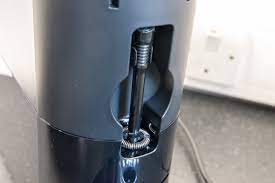If you’ve ever experienced a water heater malfunction, you know what a hassle that can be to your family’s comfort and daily routine. A tankless water heater means you don’t have to worry about running out of hot water, wasting space, water, and energy, which are common problems with traditional water heaters.
Tankless heaters, also known as on-demand heaters, are compact and incredibly efficient, as they heat water only when needed. We’ve got some advice about choosing one for your home, plus some benefits of tankless water heaters to help you decide if it’s right for you.
Tankless vs. traditional water heaters
Traditional tank water heaters work by preheating a supply of hot water, between 20 and 80 gallons, so that when you turn on the hot water faucet, it will be ready for use. As more cold water is taken in to replace what has been used, the tank heats it to your set temperature until more water is used. In other words, the unit is constantly heating a full tank of water, so you can imagine how much energy is wasted while you’re away from home or asleep!
Tankless water heaters are exactly what they sound like. Having no tank means the hot water will only be generated when needed. Warm water is drawn into the heater when the hot water tap is opened, where it is heated to your desired temperature. Compared to traditional tank heaters, they can save you as much as 50% of your fuel costs because they don’t generate standby heat loss.
Benefits of tankless water heater
Tankless water heaters are considered more efficient than most traditional water heating methods. It is primarily because they provide hot water on demand without wasting energy heating water that isn’t being used. Heat is stored in tanks, which heats the entire tank when not in use. The heater has to reheat the whole tank when you need hot water, wasting energy.
1. Efficiencies
Many people believe that a tankless water heater will be less efficient than a conventional one, such as a convection or conductor coil. However, this is far from the truth since tankless water heaters provide remarkably similar heating performances to traditional gas water heaters. Providing hot water when you need it without wasting energy is the main benefit of these units. As long as the heat in a traditional gas tank unit is not used and reheated daily, there will always be some heat loss.
2. The Durability
Since an electric unit has an average working life of roughly 20-25 years, this investment should last you quite some time, allowing you to lower your energy bills and avoid replacing it until you are ready to handle it on your own.
Homeowners who encounter problems with these water heaters can usually figure out how to manage them efficiently. Another reason to consider installing a tankless water heater in your home is that most utilities offer discounts for new homes that use alternative energy and rebates for switching from gas storage systems that are not at least Energy Star compliant (which most pre-1994 models are not).
3. Expenses
The average cost for one of these units is between $400 and $1,000, depending upon the model. It may be a bit pricey at first, but it will pay off over time as electricity gets more expensive as time goes on. A tankless unit doesn’t offer many savings if you live in an area where utilities aren’t costly, these units won’t exceed the efficiency of a standard gas storage heating system. However, after a few months of usage, you will notice the savings in a high-cost area.
Read more: Who Is Ethan Cutkosky? Ethan Cutkosky Height, Early Life, Education And Everything You Need To Know
4. Ease of Installation
One of these units does not require gas lines or hot water plumbing systems. Just mount the unit on a wall next to an electrical outlet, which anyone can quickly do with minimal knowledge of how electric circuits and plumbing work, make sure it is adequately grounded!
5. Design that saves space
Tankless heaters have several distinct advantages over traditional tank units that aren’t yet widely used in the U.S. market (even though they have been used in Europe for years). The tankless gas models do not require any additional space in your home or yard, as they don’t need to house bulky storage tanks. They can be installed inside your home without worrying about excessive heat levels, and they can easily be moved if you need more space at a later date.
6. Temperatures low
If your shower feels less warm than it used to be, this is most likely due to the hot water tank system slowly starting to lose its capacity to store heated water, making your showers feel calmer and using more hot water. Tankless systems address this problem by enabling users to access hot water at any time, reducing the amount of energy used to reheat cold or lukewarm water that is constantly lost in standard storage tanks.
7. Easy to maintain
Maintenance isn’t required once it has been in service for ten years. A tank heater does not require the anode rod to be checked. Maintain a clean filter at all times, and make sure no sediment builds up in your incoming water supply, and all should be well for many years. You need to know the depth of your good pump if your tankless water heater needs maintenance. The tanked water heater you have will have to be replaced with a tankless unit if you use electricity to heat the water.
It is typical for tanked water heaters to heat water to about 140 degrees (Fahrenheit use), meaning much of the heated water will be wasted. Water can be heated to the temperature you need with a tankless unit, and little or no energy is lost in the process. A tankless water heater is an excellent way to provide hot water without storing it. As a result, it can be installed in spaces with limited space, requiring little maintenance. The tankless technology is less expensive to operate than traditional heaters by heating water on demand.
Conclusion
There are many benefits associated with tankless water heaters for homeowners. Tankless water heaters are among the newest innovations in major home appliances. Unlike large water tanks, these systems provide hot water throughout the house without requiring a large heating system. Their energy consumption is much lower than gas-powered ones, and they occupy much less space than gas-powered ones.










